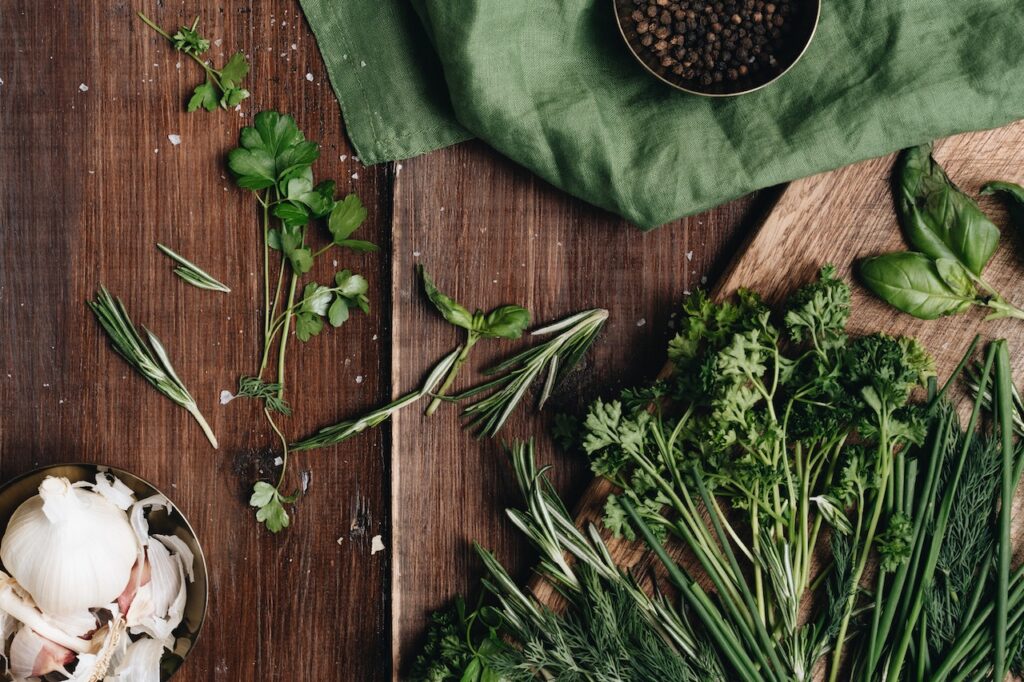Throughout history, herbs have been recognized for their various health benefits and have played a significant role in traditional medicine practices across different cultures.
The Ebers Papyrus, written in Egypt about 1500 B.C. describes how herbs were used to treat ailments, such as Peppermint for the treatment of flatulence. The New Testament recognised apothecaries and their role in using ointments made from herbs and spices to treat illness.
Healing plants and herbs are essential adjuncts working alongside westernised medicines to provide us with natural, homeopathic solutions to many ailments. To that end, I felt it was about time to establish an organised herb garden on my kitchen windowsill as I always have the odd plant flourishing in the sunshine there.
I have recycled old pallet wood and manufactured (image below) a very rustic-looking windowsill herb garden planter (36inx8inx4in), adding a clear plastic bag insert to avoid water leakage (easy to make and cost-neutral). I will be starting this new project from seed, providing intermediate lovely care, through to producing wholesome herbs for my small herb garden. Initially, I will be planting Peppermint, Lemon Balm, Rosemary, Chives, Thyme, and Parsley into my rustic planter where I will be writing about the experience, sharing, and caring with my extended Nomadify family.
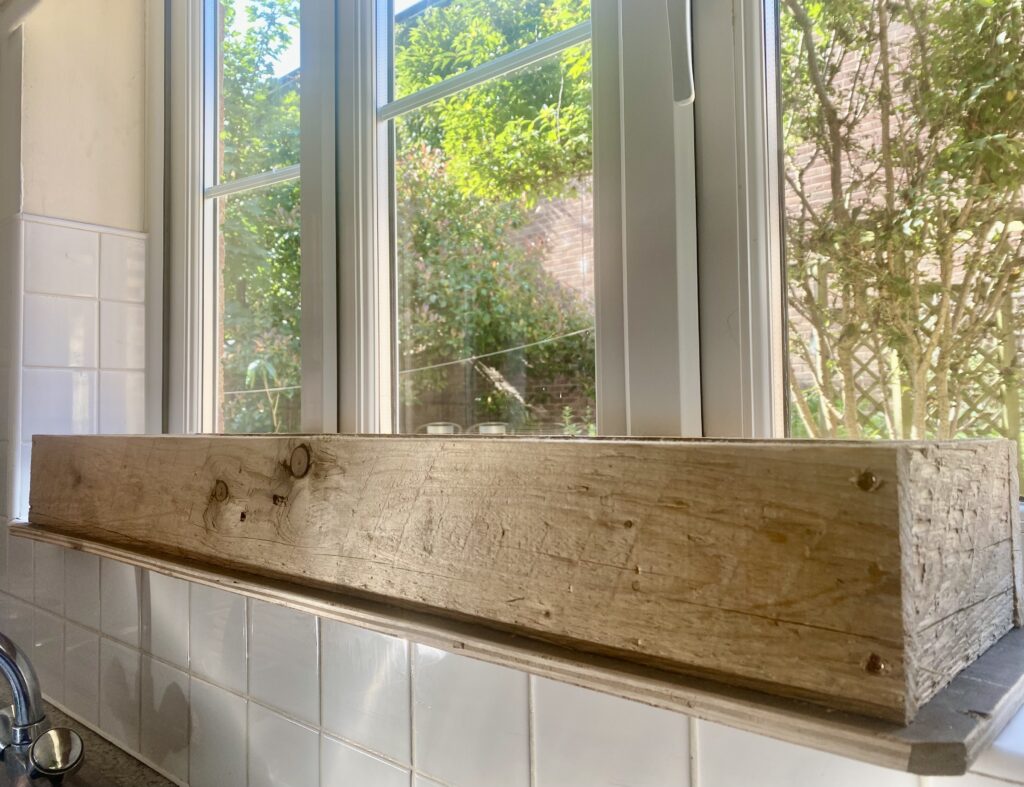
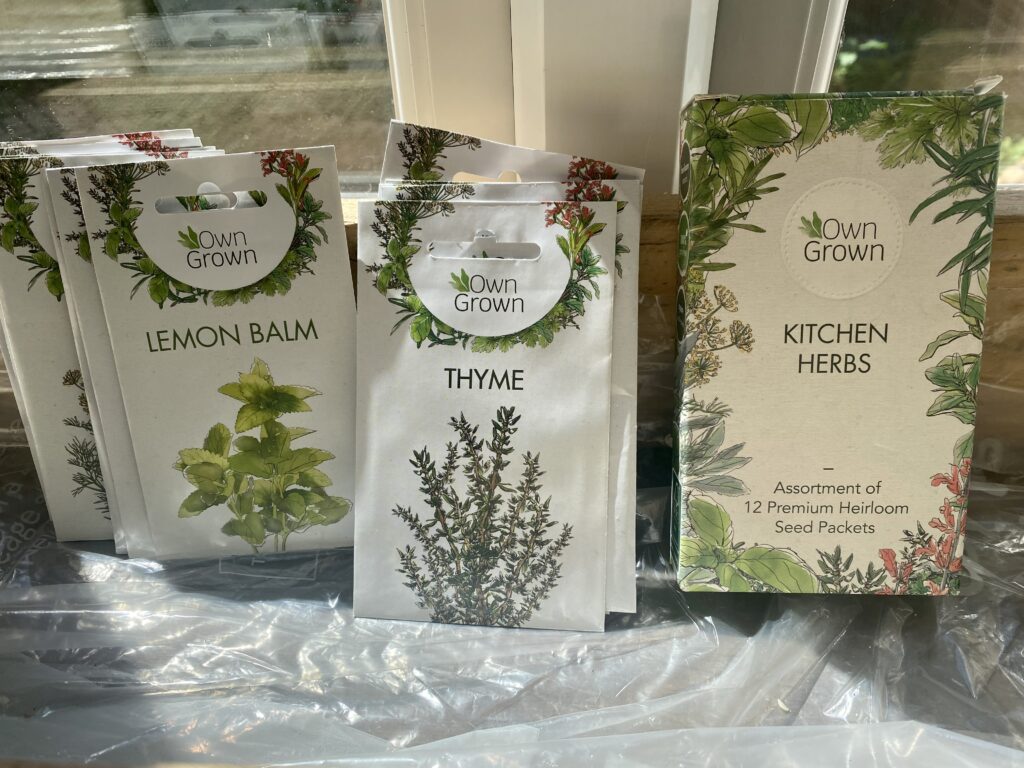
Mint – Peppermint
Mint is the family of over a dozen plants/herbs that Peppermint and Spearmint are most well known.
Peppermint is a herbaceous perennial (a hybrid of Spearmint and Water Mint) that when planted within your herb garden, will die back in the winter and return again during the spring, this adaptable herb will also grow happily indoors. Preferably plant in a sunny position, as the peppermint plant will flourish in the sun. It can adapt to just about any type of soil but develops the best foliage in moist, well-drained soil that has been enriched with compost.
Health Benefits
High in Nutrients – Mint is an excellent source of Vitamin A which supports vision and eye health. High in antioxidants which remove toxic free radicals from your body.
May improve digestive issues – Mint is well known for helping with bloating and other stomach and bowel-related issues. Peppermint contains Methol which has been found to relieve some IBS (irritable bowel syndrome) symptoms.
Mint also can help with painful indigestion. Studies have shown that if Peppermint oil is taken with meals, then food passes quicker through the stomach which can prevent or at least decrease the discomfort from indigestion.
Improve cold and flu symptoms – inhaling menthol oils (from the Peppermint plant) can help relieve a stuffy nose, hence improving cold symptoms. Studies have shown that Peppermint is effective as a holistic bronchodilator improving mild respiratory illnesses.
Cooling effects – research has also indicated that peppermint possesses relaxing properties due to its menthol compound, known for its cooling effects. This is why menthol is frequently included as an active component in creams and ointments designed to alleviate muscle discomfort.
Improves Tension-type Headaches and Migraines – Topical application of diluted Peppermint Oil to the forehead has been shown to have the same effect as the prescribed dose of paracetamol or acetaminophen.
Image Below – Mint
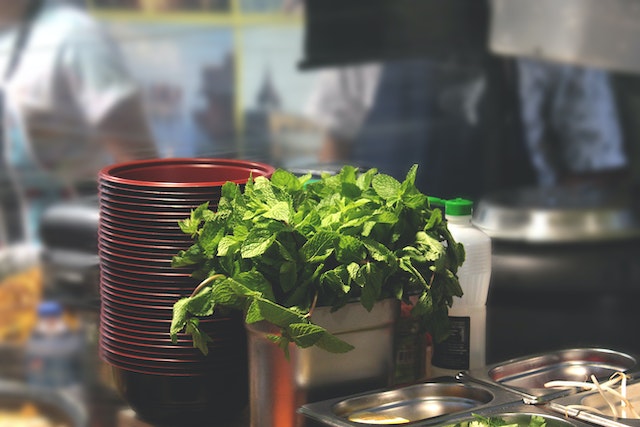
Parsley
Parsley is biennial, which means the tastiest leaves will be produced within the plant’s first year, and during its second year, the plant will concentrate on flowering and going to seed.
Parsley is slow to germinate (Spring), so have patience. It is a hardy plant that needs very little attention. As with any plant or herb, feed every few weeks with a liquid fertilizer to maintain soil nutrients. Parsley also requires a sunny position in your outdoor herb garden but will also happily sit in a sunny position nicely on a windowsill in your indoor herb garden too.
If grown outdoors, be aware that pests such as slugs and snails find Parsley tasty too. A friendly way to stop these pests from munching on your Parsley is to grow Garlic and/or Chives alongside your other herbs. These plants repel slugs and snails, many gardeners swear that using this formula rids your patch of these hungry pests. Another solution is to add crushed-up eggshells to the herb garden’s perimeter, as slugs and snails don’t like sliding over the sharp eggshell edges
Health Benefits
Full of Nutrients – Parsley has a high amount of Vitamin A (30g equivalent to 108% recommended daily intake RDI) which benefits eye health. Very high amounts of Vitamin K (30g equivalent to 547% RDI) which works in conjunction with Calcium, Vitamin D, Phosphorus, and Magnesium to help form bones, therefore beneficial to osteoporosis sufferers. Vitamin C (53% RDI) assists with the growth and repair of tissues – wound healing.
Also: Vitamin B1 Thamine – is crucial for metabolic reactions and B3 Niacin benefits the skin, digestive system, and nervous system. Vitamin B 9 is an essential vitamin during pregnancy for the essential growth of the baby in utero.
Potassium – an essential mineral that is needed in all cells.
Zinc, Copper, Iron, Zinc, and many other essential nutrients we need every day.
Antibacterial and antifungal properties – Due to these properties Parsley can be used to improve your health literally from tip to toe. Due to Parsley being alkaline, when chewed will act as a natural breath freshener and as it has antifungal properties will help fight against athletes’ foot or ringworm.
Natural Diuretic – Piol and myristicin, two compounds in parsley oil, are responsible for the herb’s diuretic qualities and can assist in the natural removal of kidney and gall stones along with any urinary tract infections.
Anti-inflammatory properties – Parsley is full of compounds that have anti-inflammatory effects and are used to treat arthritis and rheumatoid arthritis. It also contains quercetin. This powerful antioxidant prevents inflammation in the initial stages
Image Below – Parsley
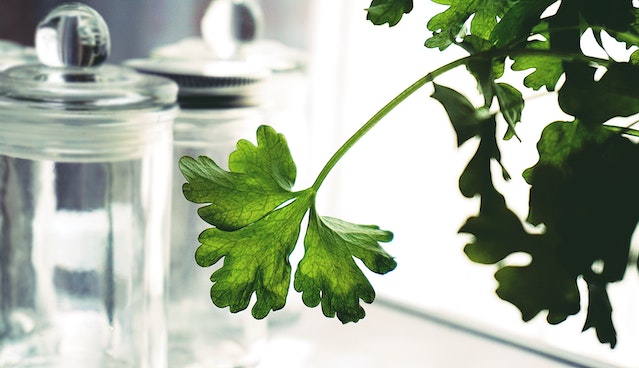
We are surrounded by beauty daily and nature gives us everything we need. Understanding the world of plants and their positive influence on our everyday lives is amazing and we all should embrace this wonderful world we live in. Exploring our world and the natural healers surrounding us boosts our mental health and educating ourselves can lead to sustainable practices.
Join me next week so we can carry on this journey together.
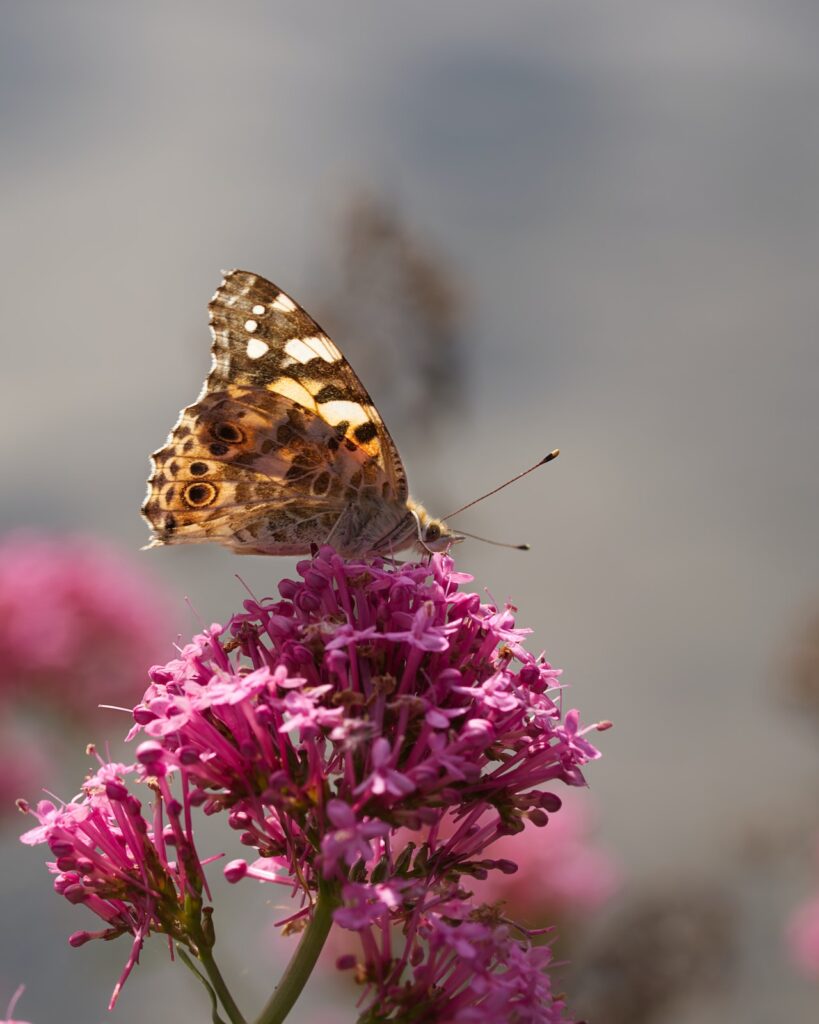
If taking any prescription drugs or pregnant/breastfeeding please consult your medical practitioner before consuming any plant or herb as a holistic therapy in conjunction with westernised traditional medicine.
As with any therapy, if you have any side effects stop using it immediately and consult your medical practitioner.

